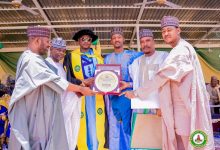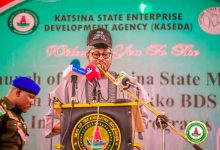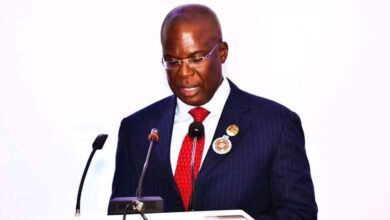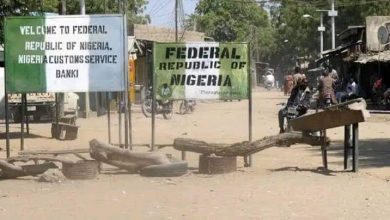Empowering Education: Senator Yakubu Lado Danmarke Initiative to Support Katsina Students at BUK, Kano
Navigating the Educational Landscape in Nigeria: Challenges and Opportunities
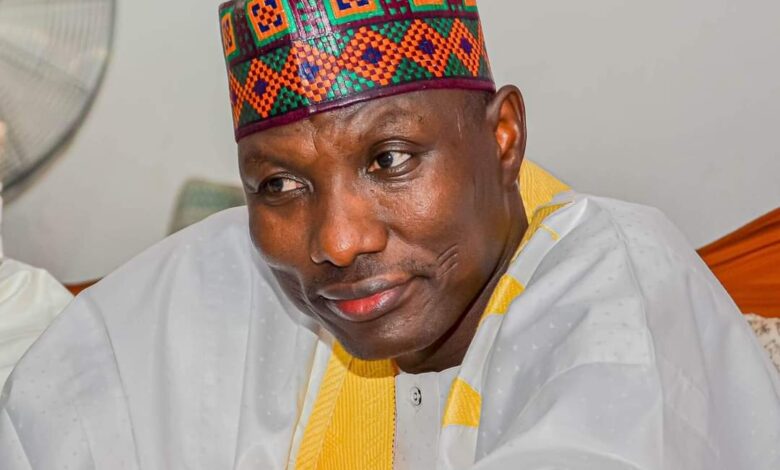
Empowering Education: Senator Yakubu Lado Danmarke Initiative to Support Katsina Students at BUK, Kano
In the ever-evolving landscape of Nigerian education, initiatives that prioritize and support students are paramount. Recently, Senator Yakubu Lado Danmarke, the PDP Governorship Candidate for Katsina State in the 2023 elections, established a committee to assess and address the challenges faced by Katsina students studying at Bayero University Kano (BUK). This initiative showcases a commitment to the welfare and educational success of these students.
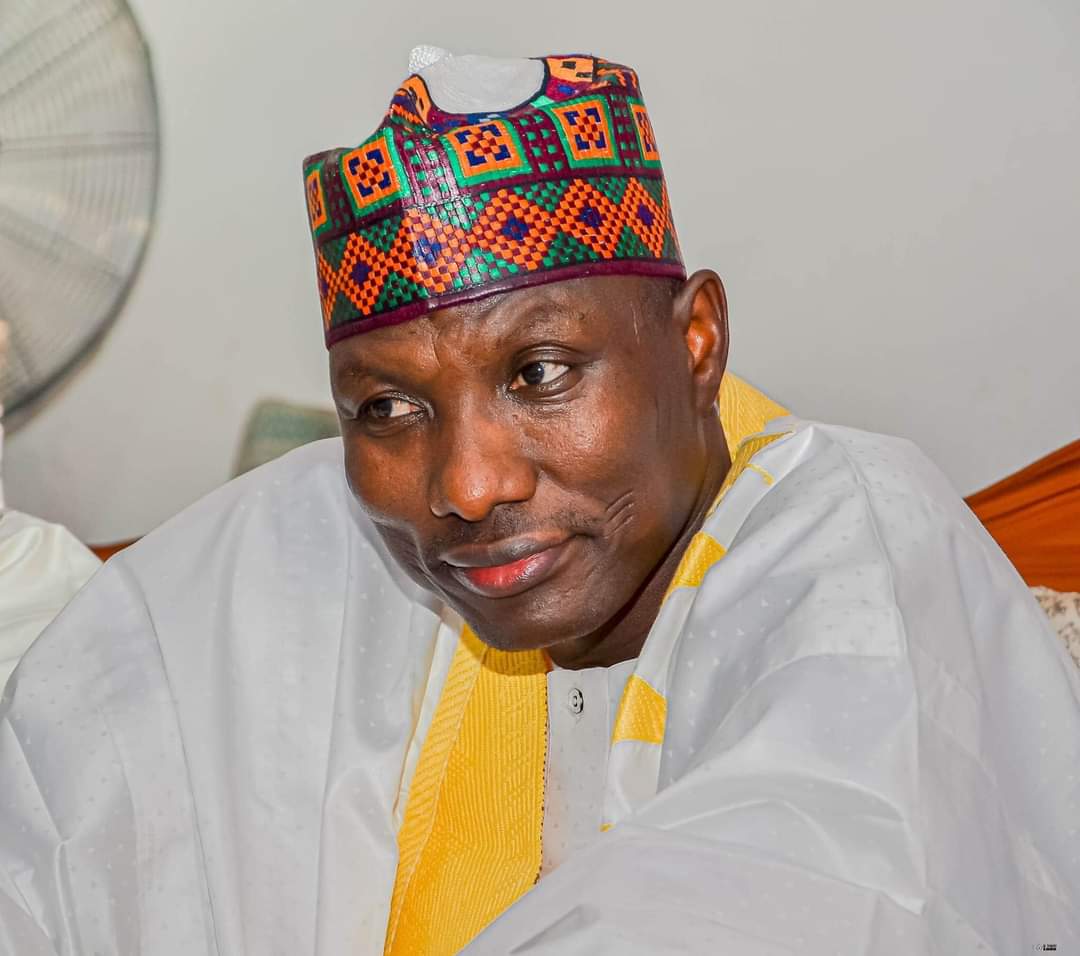
The Educational Landscape in Nigeria
Education in Nigeria is a dynamic field with its share of complexities. The journey of a student from Katsina, studying in Kano, represents not just a geographical shift but also a shift in educational dynamics. Katsina, like many states in Nigeria, has experienced significant educational development, including the establishment of numerous schools and colleges. However, the transition from secondary to tertiary education can be challenging, and this is where the role of Senator Yakubu Lado Danmarke’s committee comes into play.
Addressing Educational Challenges
The establishment of this committee, led by Muhsin Sarkin Yaki, underscores the importance of addressing the challenges faced by Katsina students in Kano. One of the primary challenges they encounter is the need to adapt to the rigorous academic demands of a prestigious university like BUK. This transition can be particularly daunting, given the disparity in educational resources and quality of instruction between Katsina and Kano.
Moreover, the financial burden of tertiary education, including tuition fees and the cost of living away from home, can be a significant challenge for many students. Senator Lado’s initiative acknowledges these hurdles and aims to provide essential support.
Supporting Students’ Transition
The heart of this initiative is to assist Katsina students in their transition to university life. The committee is tasked with ensuring that these students have the necessary resources to succeed in their academic pursuits. This includes helping them adapt to the demanding academic environment and facilitating their registration and enrollment processes.
Empowering Students for Success
Beyond just assisting with the logistical aspects of transitioning to university, the committee seeks to empower Katsina students in Kano. This empowerment entails addressing the students’ academic needs, including bridging gaps in their prior education. The goal is to ensure they can seamlessly integrate into the academic environment at BUK.
Acknowledging Senator Yakubu Lado Danmarke’s Efforts
Students from Katsina studying at BUK have expressed their gratitude to Senator Lado for his commitment to their educational journey. They appreciate the establishment of this committee, recognizing it as a significant step towards ensuring their academic success. Senator Lado’s initiative aligns with his dedication to educational development in Katsina and his understanding of the challenges faced by students in the state.

Navigating the Educational Landscape in Nigeria: Challenges and Opportunities
Education is the bedrock of any thriving society, and Nigeria is no exception. The country boasts a rich and diverse educational landscape with significant achievements and unique challenges. In this blog post, we’ll explore the current state of education in Nigeria, including its challenges, opportunities, and the initiatives aimed at addressing these issues.
The Educational Landscape in Nigeria
Nigeria’s educational system is complex and multifaceted, comprising various levels, from primary to tertiary education. It encompasses public and private institutions, each with its own strengths and challenges.
Challenges in Nigerian Education
- Access to Education: Despite improvements in recent years, access to quality education remains a challenge, particularly in rural areas. Many children still lack access to basic education.
- Infrastructure: Inadequate infrastructure, including classrooms, libraries, and laboratories, is a significant issue. This affects the quality of education and the learning environment.
- Quality of Instruction: While there are many dedicated teachers in Nigeria, the overall quality of instruction can vary widely. The curriculum may need to be updated to meet the demands of the modern world.
- Standardized Examinations: The pressure associated with standardized examinations, such as the West African Senior School Certificate Examination (WASSCE), can be intense and does not always reflect students’ true abilities.
- Funding: Education budgets often fall short, hindering the ability to provide adequate resources, teacher training, and infrastructure improvements.
Opportunities for Improvement
- Reforming the Curriculum: Updating the curriculum to align with current global needs and trends is an opportunity for improvement. This can help students acquire relevant skills for the job market.
- Teacher Training: Providing ongoing training and support for educators can enhance the quality of instruction and create a more nurturing learning environment.
- Public-Private Partnerships: Collaborations between public and private sectors can address infrastructure and funding gaps. This partnership can lead to more resources being directed towards education.
- Access to Digital Learning: The increasing availability of technology can help bridge the educational divide. Online learning resources can provide access to quality education, especially in remote areas.
Initiatives to Address Educational Challenges
- Universal Basic Education (UBE) Program: Launched in 1999, the UBE program aims to ensure free and compulsory basic education for all children in Nigeria. While progress has been made, challenges remain.
- Tertiary Education Trust Fund (TETFund): TETFund supports public tertiary institutions with funding for infrastructure development and faculty improvement.
- Educational NGOs: Various non-governmental organizations are working to improve education in Nigeria, addressing issues like access to quality learning materials and teacher training.
- Government Commitment: The Nigerian government has shown a commitment to enhancing the educational sector, increasing funding, and developing policies to improve access and quality.

Nurturing Minds: Strategies for Addressing Educational Challenges
Education is the cornerstone of personal and societal growth. However, numerous educational challenges persist, both globally and within individual nations. In this blog post, we explore the importance of addressing these challenges and discuss several strategies that can help overcome them, ensuring that quality education is accessible to all.
The Global Educational Landscape
Around the world, access to quality education remains a pressing issue. From disparities in educational resources to issues of gender inequality in schooling, educational challenges can have far-reaching consequences. In Nigeria, as in many other countries, these challenges are multifaceted and require a comprehensive approach for resolution.
Educational Challenges in Nigeria
Nigeria, a country with a diverse and dynamic educational landscape, faces a range of challenges, including:
- Access to Quality Education: A significant number of Nigerian children still lack access to basic education, particularly in underserved and rural areas.
- Infrastructure: Inadequate school infrastructure, including classrooms, libraries, and laboratories, affects the quality of education and the learning environment.
- Quality of Instruction: While many dedicated educators are present in Nigeria, the overall quality of instruction varies widely. Curriculum updates and teacher training are vital for improving education.
- Standardized Examinations: The immense pressure associated with standardized examinations, such as the West African Senior School Certificate Examination (WASSCE), can lead to intense rote learning rather than a deeper understanding of subjects.
- Funding Shortages: Education budgets often fall short, limiting the resources available for teacher training, infrastructure improvement, and the procurement of up-to-date learning materials.

Strategies for Addressing Educational Challenges
- Reform the Curriculum: Curriculum reform is a fundamental strategy to ensure that the education system remains relevant and prepares students for the demands of the modern world. Curriculum updates can incorporate practical skills and competencies.
- Teacher Training and Support: Ongoing professional development for educators is essential to enhance the quality of instruction. This includes training in modern teaching methods and continuous learning.
- Public-Private Partnerships: Collaborations between the public and private sectors can help address issues of infrastructure and funding. Public-Private Partnerships (PPPs) can direct more resources toward education, improving access and quality.
- Access to Digital Learning: The growing availability of technology can bridge educational divides. Online learning resources, educational apps, and digital libraries can provide access to quality education, particularly in remote or underserved areas.
- Empowering NGOs: Non-governmental organizations (NGOs) dedicated to education are essential partners in addressing educational challenges. They work to improve access to quality learning materials, support teacher training, and advocate for change.
- Government Commitment: The government plays a pivotal role in addressing educational challenges. Commitment to enhancing the educational sector through increased funding and the development of policies to improve access and quality is essential.
Conclusion
Senator Yakubu Lado Danmarke’s committee to support Katsina students at BUK, Kano, exemplifies the importance of prioritizing and empowering education. As students from various regions strive to access higher education, initiatives like this play a vital role in ensuring that they not only have the opportunity but also the resources and support needed to excel in their academic pursuits. By addressing the unique challenges faced by Katsina students, this initiative paves the way for a brighter future and underscores the value of education in transforming lives and communities
